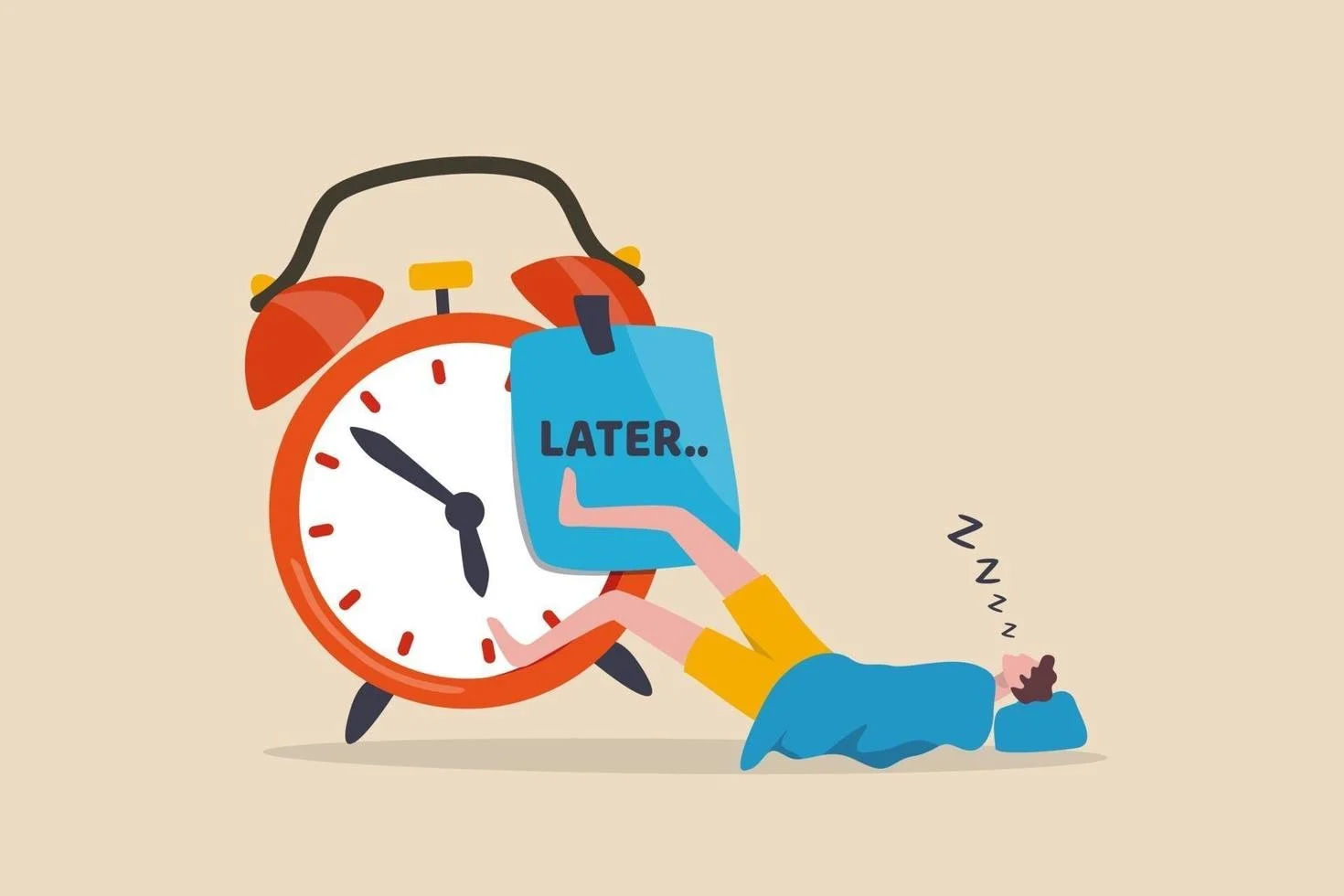
You finally get the chance to sleep in – no alarms, no early classes – and you wake up at noon, expecting to feel refreshed. But instead? You feel like a zombie. Foggy, sluggish, and somehow more tired than when you went to bed. What gives?
That annoying grogginess you’re feeling isn’t just a random glitch. It’s a real phenomenon called sleep inertia, and it’s stronger than you might think.
What Is Sleep Inertia?
Sleep inertia is that period of mental and physical sluggishness you feel right after waking up. It’s like your brain is booting up on 3G while your body’s trying to sprint. Studies show that during sleep inertia, your reaction time, memory, and decision-making are all impaired: sometimes as badly as being legally drunk (Wertz et al., 2006).
This grogginess can last for 30 minutes to an hour—and even up to a few hours if you wake up during the wrong sleep stage or throw off your body clock.
Common Misconceptions About Sleeping In
Let’s break down some common myths:
Myth #1: More sleep always means more energy
Truth: Oversleeping doesn’t always help. If you sleep in too long, especially past 9 or 10 hours, you may disrupt your sleep architecture—the natural cycles of REM and non-REM sleep. Instead of waking up at the end of a sleep cycle (which is ideal), you might wake during slow-wave sleep, the deepest stage—leading to stronger sleep inertia (Tassi & Muzet, 2000).
Myth #2: You can “catch up” on sleep by sleeping in
Truth: While you can make up for some missed sleep with longer sleep on weekends, this strategy often backfires. Shifting your wake-up time drastically (e.g., from 7 AM to 11 AM) confuses your circadian rhythm, your internal clock, and can make it harder to fall asleep at night.
Myth #3: Sleeping in resets your energy
Truth: It often resets your clock: in the wrong direction. Sleeping in late can delay your melatonin release, making it harder to sleep the next night. This creates a vicious cycle of late nights and groggy mornings, especially for teens (Crowley et al., 2007).
Myth #4: If you wake up tired, you just need more sleep
Truth: Not always. Sleep quality and when you wake up during your cycle matter just as much. You could get 9 hours and still feel horrible if you woke up mid-REM or during deep sleep.